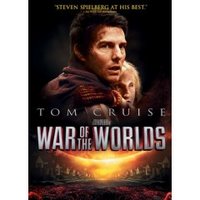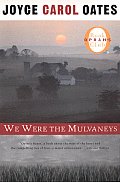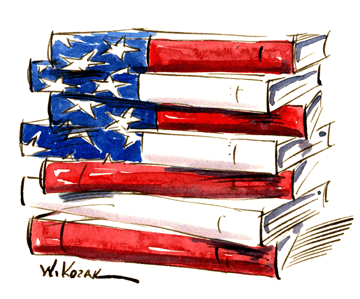
Am I the only one that expected at least a decent movie out of Spielberg and Cruise? This was lousy.
It is difficult for me take the time to sit down to a movie. I mean, put down the book, turn off the laptop, turn on the surround sound and actually watch a movie. But what a waste of a Saturday night.
I don't really like Tom Cruise, but if the movie is good enough I can get over it (like Magnolia). Little Dakota Fanning is excellent, so she cancels out Cruise. And then we get dramatic effects and an end-of-the-world scenario--these should count as positives. But I was laughing at it early on, and then by the time we got to the Tim Robbins character, the whole damn thing fell apart.
I never read the HG Wells book, but somebody please tell me it was better than this. So much urging to fight back, fight back, and then during the denouement we find out that **SPOILER** they were never going to survive here any way? Come on.
At least the eye looked a little like the 1955 version.





